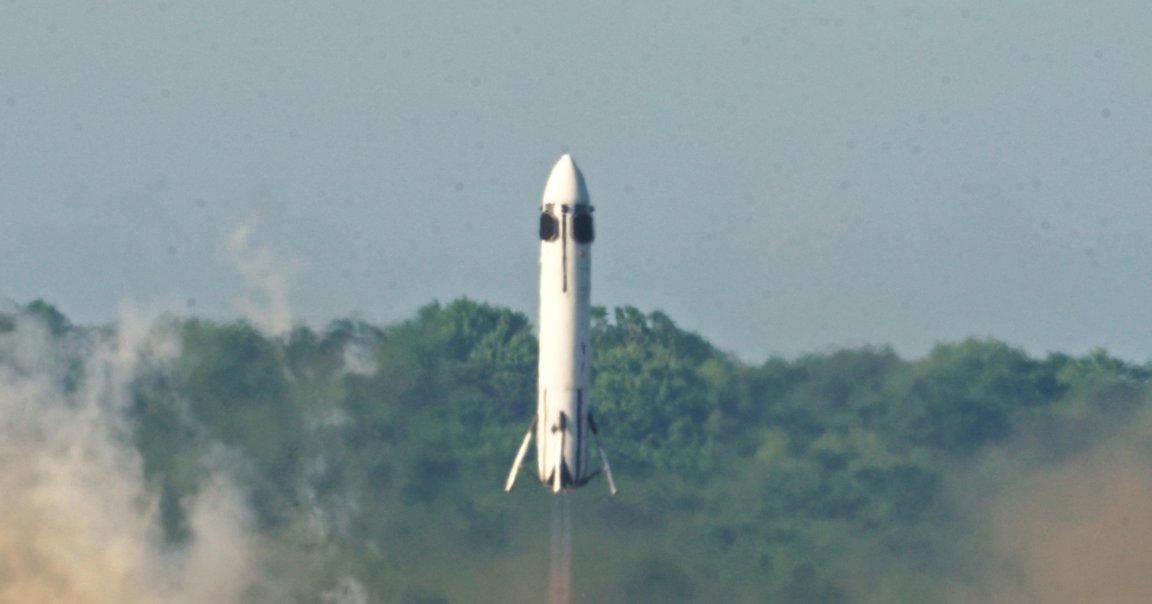
Were you aware that Honda, one of the world’s largest automakers, has had spaceflight ambitions of its own? No? Well, it’s just announced itself in a big way.
On Tuesday, the Japanese conglomerate surprised us all by declaring that its research arm, Honda R&D, had successfully launched and landed its prototype reusable rocket, in a major step towards achieving its dream of suborbital spaceflight by 2029.
The footage that Honda shared, though brief, is impressive. The roughly 20–foot rocket springs off the ground with little effort, elegantly retracting its legs before taking to the skies, reaching a maximum altitude of 870 feet.
Moments later, the nimble craft comes in for a touchdown, unfurling its landing gear with similar finesse as before, and finally setting itself down on the launchpad without so much as a bump. When the smoke clears, it’s still standing tall.
We mean “tall” in the figurative sense, by the way. With its diminutive stature and a dry weight of just under 2,000 pounds, it’s a pretty small rocket. For comparison, SpaceX’s first reusable rocket prototype, Grasshopper, which debuted in 2012, was over five times the Honda vehicle’s height at 106 feet tall.
Out of the blue as it may be, it’s been a long time coming. In 2021, Honda teased that it had already started developing a prototype rocket engine. There’s been little buzz about the reusable rocket since then, but it hasn’t hidden its broader space ambitions. In April, Honda shared its plan to test a renewable energy system for the Moon on the International Space Station. That month, Honda also created a space business unit in the US to promote collaboration with American companies.
It sounds like Honda believes that space capabilities could augment its other enterprises, similarly to how SpaceX uses its own rockets to maintain its Starlink satellite-based internet service, or how Amazon plans to do the same with Blue Origin, which has its own satellite service in the wings.
“Honda started rocket research based on the belief that it has the potential to contribute more to people’s daily lives by launching satellites with its own rockets, that could lead to various services that are also compatible with other Honda business,” the company said in the statement.
As Reuters noted in its coverage, Honda’s domestic rival, Toyota, also has skin in the space game: earlier this year, the world’s largest automaker announced that its research unit would invest in the Japanese aerospace startup Interstellar Technologies to support the mass production of its rockets.
Honda, for its part, is either keeping its cards close to its chest or is still feeling out its next move, stressing that “no decisions have been made regarding commercialization of these rocket technologies.”
More on spaceflight: SpaceX May Be Failing to Get Starship Working at All